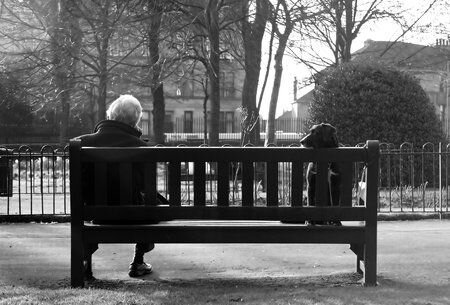How comfortable are you with uncomfortable conversations? How well do you handle stressful situations? Do you find yourself avoiding your boss at work, because he seems to only point out your flaws, rather than acknowledge what you’ve successfully accomplished? When situations get serious, do you tend to crack a joke to break the uneasy tension? How often do you scroll aimlessly through social media or binge watch a television series to escape reality? Of course we’d much rather receive praise over criticism, laugh instead of cry, and distract ourselves rather than ruminate on our daily stressors. Given the choice, we would choose comfort over discomfort every time.
It’s a No-Brainer
Pleasure over pain, please! Oh the things we do to protect ourselves from feeling discomfort. This is such an innate reaction for us that we don’t even realize how often we are doing it. Everyday we combat distressing thoughts and feelings through defense mechanisms. A defense mechanism is an unconscious means to decrease internal stress. We don’t even have to think about it, our brains just activate into protection mode. The limbic system plays a major role in this, which involves the part of our brain responsible for behavioral and emotional responses, especially when it comes to our survival instincts, such as fight or flight. We are literally wired to protect ourselves.
Formed from Emotional Wounds
Although we all have this innate reaction to defend ourselves, the more emotional wounds we’ve endured, the stronger our defenses become. When experiencing frequent or repeated emotionally distressing events, defenses can become really strong in order to protect from feeling emotional discomfort or pain. Think of it as building this brick wall around your heart or wearing full body armor like a knight. You’ve been emotionally hurt to the point you refuse to let anyone or anything even have the chance to cause you pain.
For individuals who have experienced a lot of hurt or loss, especially throughout their early childhood, defense mechanisms can become so hardwired that they present themselves in situations we rationally do not need defending. It’s as if our brain perceives a “threat” that actually isn’t there. An example of this would be if you’ve experienced abandonment in your past and you start to avoid your friend who hasn’t spoken to you in a few weeks. In reality, your friend has been busy with a new job, however your past abandonment wounds perceive she is leaving you, so your defenses come up to protect from the possibility of getting hurt. Although defense mechanisms initially serve to protect us, over time they can create major barriers in our relationships and hinder our personal growth. Ultimately, continuing to live from our defense mechanisms may be hindering our relationship with God and living out the life He intended for us.
How to Let Your Guard Down
Awareness is key. We can’t change something if we aren’t aware it exists. What are common defense mechanisms you may be using? Avoidance, distraction, deflection, denial, or humor? Click HERE to check out our handout of defense mechanisms and see which ones stand out to you. Once you’ve identified your go-to defenses, be curious why these defenses are coming up for you. What are you attempting to protect yourself from? What emotions are you feeling when these defenses arise? Are there emotional wounds you haven’t dealt with yet?
If you are thinking to yourself right now, “Psh, I don’t have any emotional wounds”, I gently encourage you to reference the “denial” defense mechanism; Unfortunately, we live in a fallen world and we ALL have been hurt at some point in our lives. After you’ve identified your defenses and start to uncover where they stem from, I encourage you to seek trusted support to process through your emotional wounds. The world teaches us that being emotional is a weakness. “Suck it up and move on.” The truth is, until we allow ourselves to sit with our emotions and process through them, they will continue to control us.
From Defensive to Defended
This fallen world has wired us to defend ourselves, but this isn’t the life God intended for us. God is our defender, shelter, shield, and our rock. The Lord guards our hearts and our minds (Philippians 4:7). We are hidden in Him (Colossians 3:3), and we are more than conquerors through Him (Romans 8:37). We aren’t meant to carry our burdens (Psalm 55:22), and we aren’t supposed to fight this battle on our own (Deuteronomy 3:22). “The Lord will fight for you; you need only to be still” (Exodus 14:14). I want to encourage you to take off the armor you’ve created from the hurts of this world, and put on the full armor of God (Ephesians 6). Seek His help and comfort in times of distress, and allow Him to heal your emotional wounds of the past.


